You’re about to make your morning cup of joe, and you notice that your coffee is out-of-date for quite some time now. How long does coffee last, anyway?
Well, it all depends on how you make your coffee.
If you buy whole beans, these retain quality the longest. So even if they’re expired for a few months (or years), they’re usually quite alright.
(Unless you’re a coffee connoisseur, in which case you’d have tossed them a long time ago.)
For ground and instant coffee, they too stay okay for quite a while, often way past the printed date.
In the end, it’s all about whether you find that coffee good enough to drink. If it’s months past its date, but you still enjoy it, then, by all means, continue. But if it tastes stale, you should toss it no matter what the date says.
Let’s talk about all the coffee options one by one, including what to do with your morning coffee when it’s 4 PM.
Jump to the section you’re interested in:
Do Coffee Beans Go Bad?
Commercial coffee beans you buy in the supermarket keep decent quality for 3 to 6 months after the printed date. That means a shelf life of 15 to 30 months.
Specialty beans that you order from small roasters brew the best coffee for about 2 to 4 weeks from the moment you get them.
Both periods are estimates and pertain to quality, not safety. Coffee beans stay safe to use for years assuming that you do a good job of storing them.
Now, there’s a massive difference in recommended shelf life between the two types. Why?
Mainly because both types of beans are marketed to different kinds of coffee drinkers.
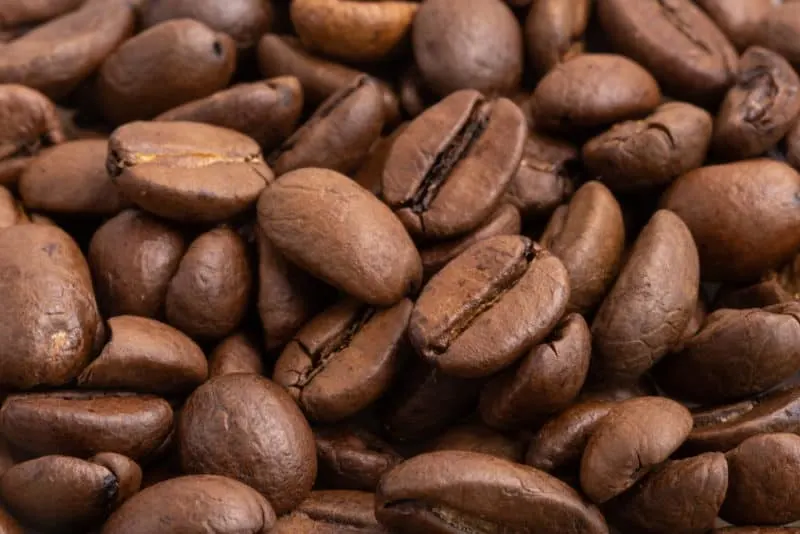
Supermarket Brands vs. Specialty Coffee
Supermarket beans from brands like Lavazza are for regular coffee drinkers who just want their daily dose of caffeine. They don’t mind that the beans aren’t of a certain quality, usually don’t care much about them being single-origin and not a blend, and so on.
Those coffee drinkers (yours truly included) don’t notice that big difference between fresh beans and those that sit in the pantry for over a year. Hence the long shelf life.
People who buy specialty beans, besides spending more money on coffee, usually care much more about their quality and getting the most flavor and aroma out of them. That’s where grinding sizes, various brewing methods, and fancy equipment come into play.
If you’re that kind of person, you know how good coffee tastes and have a strong opinion on your preferred brewing method. And to get the best flavor, you buy the beans fresh, and only as much as you need for a month.
Coffee subscription services such as Atlas Coffee Club or Trade Coffee Subscription might be a good option if you’re all about specialty coffee.
Storing Beans
Store your coffee beans in a cool and dry place, in a container or bag that’s sealed tight. A cupboard in the kitchen or pantry works perfectly fine; just make sure it’s not near any sources of heat.
That’s about all your beans need.
If you want to up your storage game a bit, consider freezing the beans. Many people swear by this method but don’t expect huge gains in quality retention for long-term storage. The improvement will be slightly noticeable and not a game-changer, in most cases.
Putting your stale coffee beans in the freezer won’t fix them. They will still be stale when you grind and brew them.
Last, if you’re buying coffee beans in the supermarket, choose beans sold in bags with degassing valves. They release excess CO2 that the beans produce but don’t let oxygen or moisture in. That results in beans keeping better quality for longer.
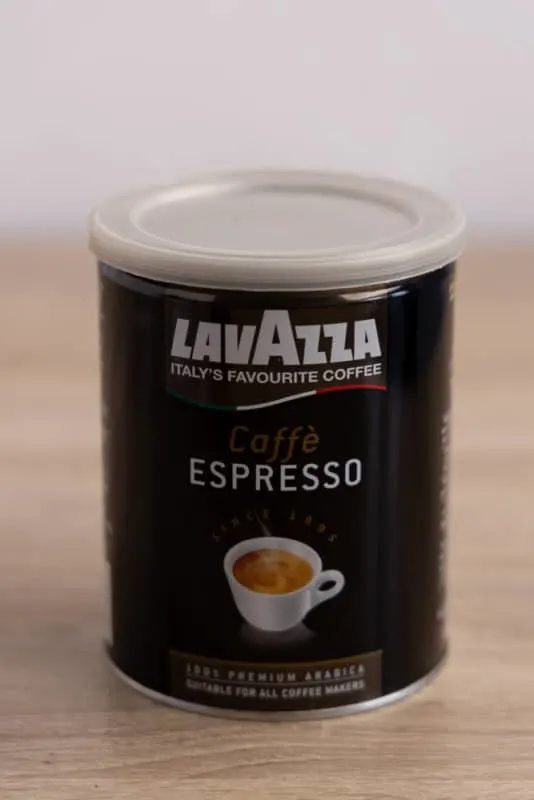
When to Discard Coffee Beans?
Throw out your beans if:
- the coffee they make is tasteless, or the flavor has changed and it’s not good enough anymore
- there are pantry bugs in the container or bag
- the beans smell off (rancid, sour, or “funny”)
- there’s anything else wrong about the beans (think mold, and so on)
- you’re not comfortable with the date (e.g., the beans are expired for three years)
Interested in learning more about coffee beans? Head on to our article on the shelf life of coffee beans.
Does Ground Coffee Go Bad?
Ground coffee keeps best quality for a couple of months past the printed date, but stays safe to use pretty much indefinitely. As long as there’s no mold in the bag and the grounds don’t smell off, the coffee should be safe to use.
That said, freshly ground coffee is best, and that’s why millions of people buy whole beans and grind them themselves. Plus, you can choose the grinding size that’s best for your brewing method, and so on.
And if that’s you, always grind only as much as you need. Ground coffee loses some flavor and aroma within hours of grinding, which is why grinding in advance is a bad idea.
When it comes to pre-ground coffee, the date on the label isn’t all that helpful. It can serve as a baseline, but in most cases, you should find the coffee okay even if the grounds are expired for six months or even a year.
Like all things coffee, it’s more about your taste buds than anything. If the coffee that your ground coffee produces is good enough, then, by all means, continue using it, no matter the date. But if you don’t like it much, there’s no point in having it around.
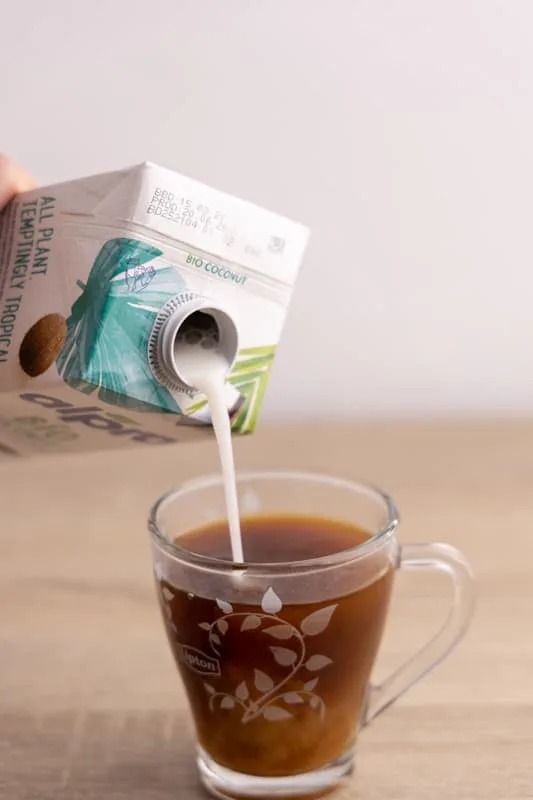
Storing Ground Coffee
Make sure your ground coffee is sealed tightly in a cool and dry place. A resealable container in the pantry or kitchen works just fine.
If you want to retain the quality for a bit longer, you can try freezing the grounds. That won’t be a huge improvement, but who knows, maybe you’ll notice a difference. It’s worth trying if you have a lot of spare space in the freezer.
If you want to freeze ground coffee, make sure it’s sealed tight. And don’t try to defrost it – use it straight from the freezer.
Last, never scoop coffee with a wet spoon. That’s a recipe for wet lumps of coffee grounds and maybe even mold.
When to Toss Ground Coffee?
Throw out ground coffee if:
- there’s mold or wet lumps in the bag or container
- you find pantry insects in the grounds
- the grounds smell off
- the coffee it makes is no longer good enough quality-wise
If your grounds are safe to use, but the quality is too bad, you can use them in many other ways.
Want to learn more about ground coffee? Read our article on the shelf life of ground coffee.
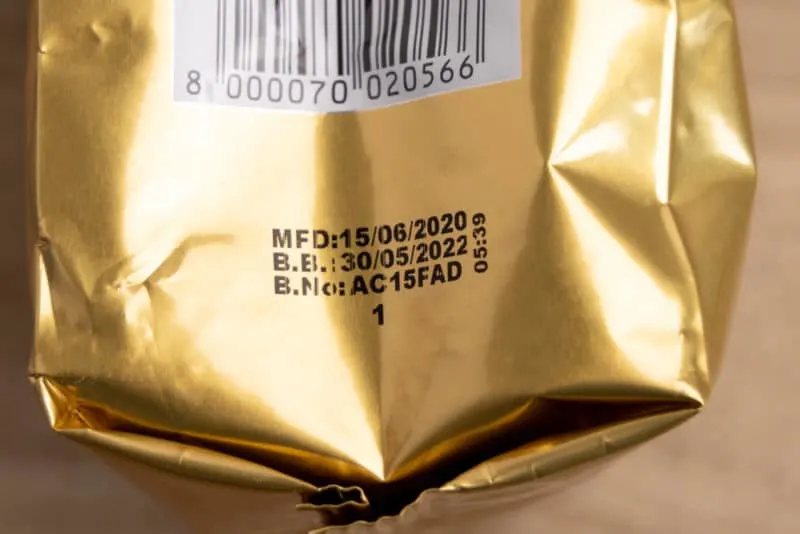
Does Instant Coffee Go Bad?
Instant coffee keeps quality for months past the printed date and stays safe to use pretty much forever if you keep it away from moisture.
The main difference between instant coffee and ground coffee is that the former dissolves after pouring in the water, leaving you with no waste. The rest, like storage time and practices, stay pretty much the same.
(Instant coffee is kind of like pre-brewed coffee that’s been dehydrated, in case you were wondering.)
That means as long as you enjoy the coffee you make from the granules, it’s fine to use it. You toss your instant coffee the moment it starts to taste bad.
Storing Instant Coffee
Store your instant coffee in a cool and dry place, sealed tight.
If your package isn’t resealable (most are), consider transferring the coffee in an airtight container for better protection from the elements. That’s especially important if you expect the granules to sit in storage for months or even years.
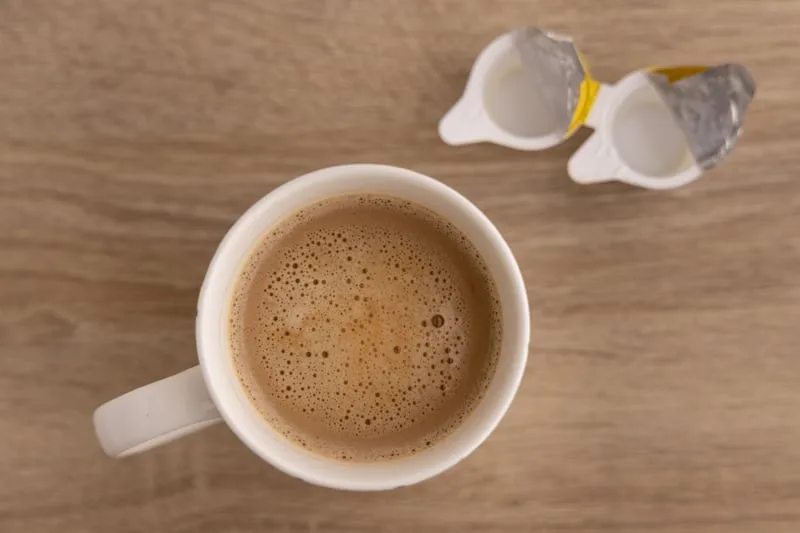
Instant Coffee Signs of Spoilage
Toss you instant coffee if:
- there’s mold or wet clumps in the container
- there are pantry bugs in the package
- the granules give off a bad smell
- the coffee the granules make is not good enough
Freshly Brewed Coffee
Drinking your coffee soon after brewing it to get the best quality is a no-brainer. Everybody knows that.
But what if you made the coffee in the morning, now it’s early afternoon, and you’re wondering if you can still safely drink that coffee.
The short answer is: you can safely drink it as long as it’s black coffee, maybe with some sugar added. If you poured in some milk or any other creamer, things get complicated.
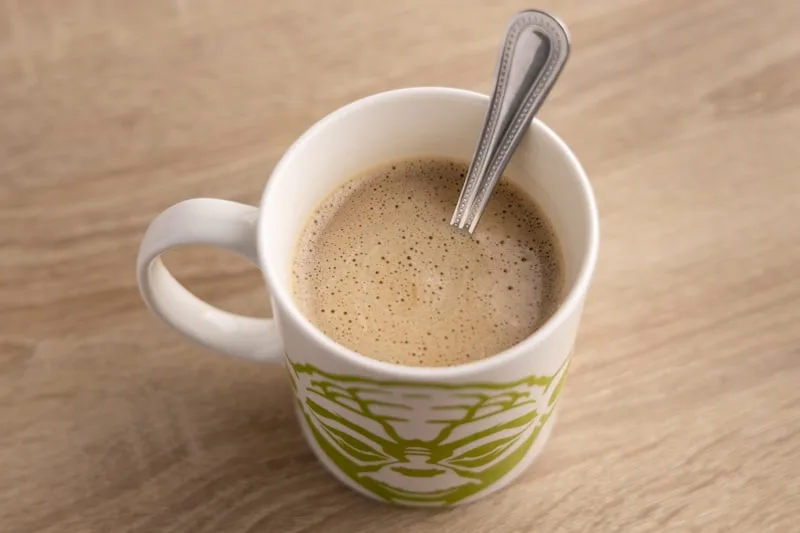
If the latter is the case, it’s probably best to toss that coffee and brew yourself a new cup. Or, at the very least, microwave it through to near boiling temperature just to be safe.
And if you found your yesterday’s coffee still on your desk this morning, toss it—no ifs or buts.